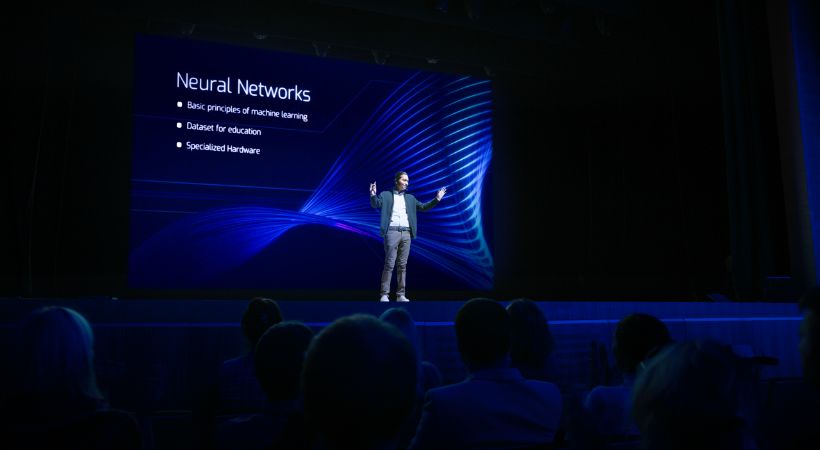July 16th, 2024 | Alex
How to Get Sponsors for an Event
When running live events there is a lot to consider. One of the main parts of running live events is sponsorships.
Event sponsorships are a huge part of running successful live events.
As a live event PR agency, we know how vital sponsorships are for live events.
They provide the funds needed to bring your event to life but also offer mutual benefits for the sponsors regarding brand visibility and audience engagement.
In this article, we will cover in-depth how you can get sponsors for your event.

What is Event Sponsorship?
Event sponsorship is a marketing approach where a company or organisation supports your event financially or by providing products and services.
In return, the sponsor receives brand exposure and promotional opportunities associated with the event.
This partnership benefits both you and the sponsors:
- You gain the necessary resources to host a successful event, while
- The sponsors enhance their brand visibility, reach a targeted audience, and build positive associations with the event.
Event sponsorships can range from local community gatherings to large-scale international events, each offering unique opportunities for brand engagement and market penetration.
How to Get Sponsors for an Event
Let’s look at the steps involved:
Preparing for Sponsorship
Clarify the purpose and objectives of your event. Establishing clear goals helps in identifying which sponsors would find value in supporting your event.
For instance, whether your goal is brand awareness, lead generation, or community engagement, it should align with potential sponsors’ marketing and corporate objectives.
Aligning goals with potential sponsors’ interests ensures that both parties benefit from the partnership.
After all, sponsors are more likely to invest in an event that complements their business goals and values.
Identifying Potential Sponsors
Find companies that align with your event’s theme and audience by exploring brands that have sponsored similar events or have shown interest in your industry.
Look for organisations that target the same demographics or share common values with your event.
Utilise tools and resources for researching potential sponsors, such as LinkedIn for company information, sponsorship databases, industry publications, and networking at related events.
This research helps in creating a targeted list of potential sponsors.
Crafting a Sponsorship Proposal
Clearly outline the tangible and intangible benefits sponsors will receive, such as:
- Brand exposure.
- Access to your audience.
- Potential ROI.
Offer a range of sponsorship packages with varying levels of investment and benefits. Clearly differentiate what each level includes to cater to different budget sizes.
Specify what the sponsor will receive and the timeline for deliverables, including pre-event, during the event and post-event benefits.
Provide your contact details and include a strong call to action, encouraging potential sponsors to get in touch to discuss opportunities further.
Ensure your proposal is visually appealing with a professional layout. Use high-quality images, brand colours, and easy-to-read fonts to make it stand out.
Pitching to Sponsors
Attend industry events, trade shows, and conferences where potential sponsors might be present. Engage in online networking through platforms like LinkedIn.
Leverage social media to connect with key decision-makers and use mutual contacts for warm introductions. Engaging with potential sponsors’ content online can also help build rapport.
Develop a compelling pitch that highlights the unique value of your event and the benefits for the sponsor. Focus on how the partnership aligns with their goals.
Address the sponsor’s objectives, showcase your event’s audience and reach, present the sponsorship packages, and provide examples of past successes.
Negotiating and Securing Sponsorships
Approach negotiations with a clear understanding of your needs and the sponsor’s goals.
Be prepared to articulate the value your event offers and be willing to listen to the sponsor’s concerns and objectives.
Be open to adjusting sponsorship packages and finding creative solutions that meet both your needs and the sponsor’s expectations. A successful negotiation should leave both parties feeling satisfied with the agreement.
Ensure that all terms and conditions of the sponsorship are clearly outlined in a written contract.
This should include deliverables, timelines, payment schedules, and any other agreed-upon terms.
Important clauses might include:
- Cancellation policies.
- Branding and usage rights.
- Exclusivity agreements.
- Performance metrics.
Delivering on Your Promises
Fulfil all the promises made to sponsors, such as brand placement, media exposure, and access to event attendees.
This builds trust and sets the foundation for future partnerships.
Keep sponsors informed of the event’s progress and any relevant updates. Provide them with regular check-ins and real-time feedback to ensure they feel involved and valued.
After the event, share detailed reports that include attendance numbers, engagement metrics, media coverage, and any other relevant data.
This demonstrates the value the sponsor received.
Collect feedback from sponsors on their experience and use their testimonials for future sponsorship pitches.
Understanding their perspective can help you improve and refine your sponsorship strategy for future events.

Build Long-Term Relationships With Sponsors
Here are some key reasons why fostering these relationships is important:
- Consistency and reliability – Long-term relationships build trust between event you and sponsors. Sponsors are more likely to support events where they have established a reliable and trustworthy partnership.
- Enhanced sponsorship packages – Long-term relationships allow for a better understanding of sponsors’ needs and objectives, enabling the creation of tailored sponsorship packages that provide more value to both parties.
- Mutual growth – Over time, your event and the sponsor’s brand can grow together, creating a strong alignment that benefits both.
- Better event experience – Knowing you have committed sponsors allows for better long-term planning and investment in the event. This can improve the overall attendee experience and the quality of the event.
- Financial stability – With long-term sponsors, there is less pressure to find new funding sources for each event.
- Enhanced credibility – Having reputable, long-term sponsors signals to other potential sponsors, partners, and attendees that your event is credible and valuable, making it easier to attract additional support.
- Innovative collaborations – Long-term sponsors are more likely to engage in creative and innovative projects, as the established trust allows for more risk-taking and experimental approaches.
Sponsoring Your Next Live Event – GALA PR
As you can see, securing sponsors for your event is not just about financial support.
It’s about building valuable partnerships that enhance the attendee experience and amplify your event’s impact.
By following this guide you can cultivate strong relationships with sponsors. These partnerships can contribute to the long-term success of your event.
At GALA PR we have a long rich history of working with various sponsorships in the live events space.
We’re a live events PR company so our experience spans across the industry with various top live event companies in the UK.
For more information on our services please reach out to us.